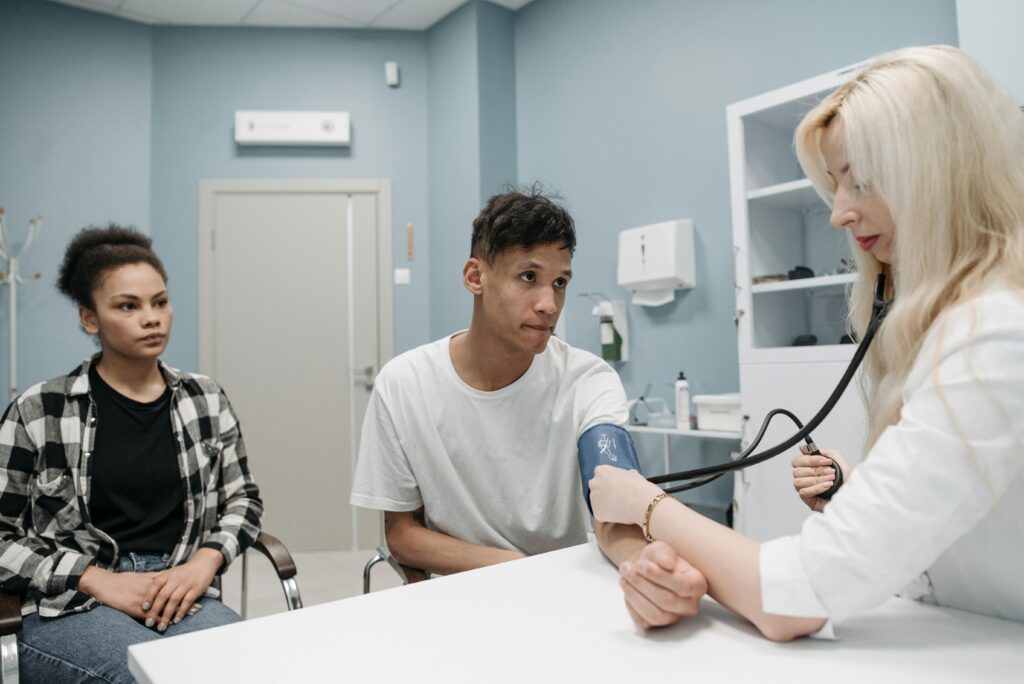|
Dear friends,
“So what does moving upstream mean?” A pediatrician recently asked us that question during a session with Harvard’s Center for Primary Care. Well, as the National Academies of Science, Engineering, and Medicine outlined yesterday, we know that moving upstream means improving patients’ care by addressing their social needs. That’s certainly what HealthBegins helps partners do. But to us, moving upstream means so much more.
This week HealthBegins hosted a webinar with two of the nation’s largest health systems that demonstrated the broader answer: moving upstream means healthcare and community partners working together to continuously improve social drivers of health at all levels, from individual social needs and community-level social determinants to the societal causes of the causes — the structural determinants of health.
Federal policies, structural racism, the climate crisis, or voting barriers might seem far removed from the clinic, but they’re important structural determinants of health. They impact our patients’ health and healthcare in powerful ways.
In our webinar, two prominent Upstreamists told us how their healthcare institutions are not just improving social needs — they’re also tackling structural determinants of health in concrete ways. Dr. Dave Chokshi is chief population health officer at New York City Health + Hospitals, the largest public healthcare system in the country. Berenice Núñez Constant is vice president of government relations at AltaMed Health, the nation’s largest federally qualified health center. And the experience and advice that Dave and Berenice shared on Tuesday about their institutions’ work on the federal public charge rule and voter registration showed us that healthcare can and does, in fact, play a critical role in shaping structural determinants.

More than 500 of you registered, but if you missed the live webinar, I don’t want to give away too many details. You can find valuable ideas and insights from Dave and Berenice in the freely available recording. Here are some top-level highlights…
In New York City, Dave and his colleagues were already pursuing a multi-level strategy to address social needs such as food and housing. But when NYC Health + Hospitals saw the new federal public charge rule, they knew it was critical for them to respond. The health system is now taking action at multiple levels: educating patients and staff about the policy, referring patients to legal help through its medical-legal partnership, and joining a lawsuit with the city and state of New York to stop the rule.
In Southern California, Berenice Núñez Constant and her colleagues are using the power of their deep relationships with communities to address another structural determinant of health: voting barriers.
(It’s not an accident that we held our webinar on National Voter Registration Day! You can find resources for encouraging voting at that link.)
To tackle structural barriers to voting, AltaMed is developing a scalable blueprint for what it calls “clinic-based mobilization,” targeting low-propensity Latino voters, and the results so far are amazing. Precincts that AltaMed targeted in L.A. County in the 2018 midterm election saw a 12-percentage-point turnout increase over 2014. And for every 1 percent of total voters in a precinct that AltaMed contacted, the turnout increased by 8.3 percent!
In the end, our inspiring panelists left us with a message that I want to underscore: Don’t be daunted! Moving from social needs to structural determinants can seem overwhelming. But there are manageable ways to start making an impact. Here are four important steps for health systems:
- Develop a deeper understanding of structural determinants. It’s hard to act on these conditions if you don’t understand how they affect your patients’ daily lives.
- Cultivate authentic relationships with non-clinical experts who address structural determinants for your patients and community.
- Find and take at least one concrete action to address structural determinants for your constituents, as individuals and as an institution.
- Update your overall upstream strategy to encompass this structural level of health.
Finally, and as always, if you want to learn more about how to advance a strategy to address structural determinants, contact us. As Paul Farmer once reminded me, “health is created with others, just as we can together dismantle systems” that cause suffering. We can navigate upstream better — improving social drivers of health at all levels — when we do it together.
Best,

Rishi Manchanda
|










